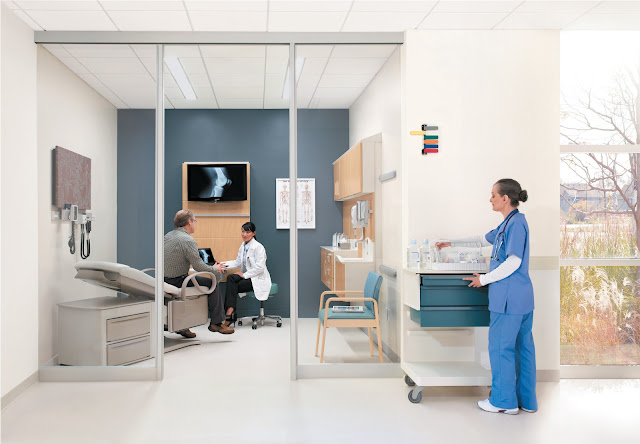Medical Devices Market Overview Key Trends
Medical Devices
Market:
Growing healthcare infrastructure and technological advancements are driving
the demand for medical devices, leading to the market's estimated value of US$ 595.42 billion by 2023. The market is expected to achieve a CAGR of 6.99% during the forecast
period of 2023-2028, according to Coherent Market Insights.
Market Overview: The medical devices market includes a wide range of products
designed to diagnose, monitor, and treat medical conditions. These devices play
a crucial role in delivering effective and timely healthcare services.
Advantages of medical devices include improved patient outcomes, enhanced
accuracy in diagnoses, and less invasive treatment options. The need for
medical devices arises from the growing prevalence of chronic diseases, an
aging population, and the increasing demand for personalized healthcare
solutions.
Market Key Trends: One key trend in the medical devices market is the adoption
of remote patient monitoring devices. These devices enable healthcare
professionals to remotely monitor and track patient health parameters, such as
vital signs, blood glucose levels, and heart rate, in real-time. The increasing
emphasis on preventive care and the rise in chronic diseases are driving the
demand for remote patient monitoring devices. These devices help in reducing
hospital readmissions, improving patient outcomes, and reducing healthcare
costs by enabling timely interventions and personalized care plans.
Porter's Analysis
Threat of New Entrants: The threat of new entrants in the medical devices
market is relatively low. The industry requires significant investments in
research and development, as well as strict regulatory compliance. Established
companies already have a strong foothold in the market, making it difficult for
new entrants to compete effectively.
Bargaining Power of Buyers: The bargaining power of buyers in the medical
devices market is moderate. Buyers, such as hospitals and healthcare providers,
have the ability to negotiate prices and choose from multiple suppliers.
However, the critical nature of medical devices and the lack of substitute
products give suppliers some leverage.
Bargaining Power of Suppliers: The bargaining power of suppliers in the medical
devices market is moderate to high. Key suppliers, such as raw material
providers and component manufacturers, have the ability to dictate prices and
terms to some extent. Additionally, suppliers with unique or patented
technologies can exert more control over pricing and supply.
Threat of New Substitutes: The threat of new substitutes in the medical devices
market is relatively low. Medical devices play a crucial role in diagnosing,
monitoring, and treating patients, and there are limited alternatives to these
devices. Therefore, the demand for medical devices is likely to remain stable.
Competitive Rivalry: The competitive rivalry in the medical devices market is
high. The market is characterized by the presence of several major players,
such as Abbott Laboratories, Roche, and Medtronic, who have strong brand
recognition, extensive product portfolios, and global reach. The competition is
also intensified by continuous technological advancements and innovation in the
industry.
Key Takeaways
The global Medical Devices Market is expected to
witness high growth, exhibiting a CAGR of 6.99% over the forecast period of
2023-2028. This growth can be attributed to several factors, including the
increasing prevalence of chronic diseases, the aging population, and the
advancements in technology and healthcare infrastructure. The demand for
medical devices is also driven by the growing focus on early diagnosis and
treatment of diseases.
In terms of regional analysis, North America is expected to be the
fastest-growing and dominating region in the medical devices market. The region
is characterized by well-established healthcare infrastructure, favorable
reimbursement policies, and high healthcare spending. Furthermore, Asia Pacific
is also anticipated to experience significant growth due to the rising
disposable income, increasing chronic diseases, and improving healthcare
facilities in countries like China and India.
Key players operating in the medical devices market include Abbott Laboratories
Inc, F. Hoffmann-La Roche Ltd, Philips Healthcare, Siemens Healthineers
(Siemens AG), Stryker Corporation, Boston Scientific Corporation, Johnson &
Johnson, Medtronic PLC, Smith & Nephew PLC, and GE Healthcare. These
companies have a strong market presence, extensive product portfolios, and
focus on research and development to introduce innovative medical devices.
In conclusion, the medical devices market is poised for substantial growth in
the coming years, driven by factors such as increasing healthcare needs,
technological advancements, and favorable demographic trends. The market is
highly competitive, and key players need to focus on product innovation and
strategic partnerships to maintain their market position.
Read
More : https://www.pressreleasebulletin.com/medical-devices-market/




Comments
Post a Comment